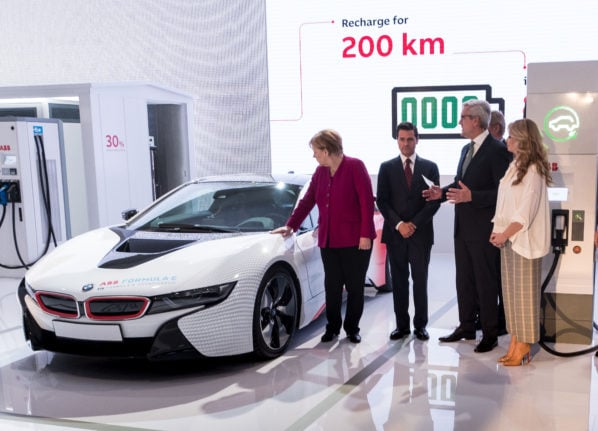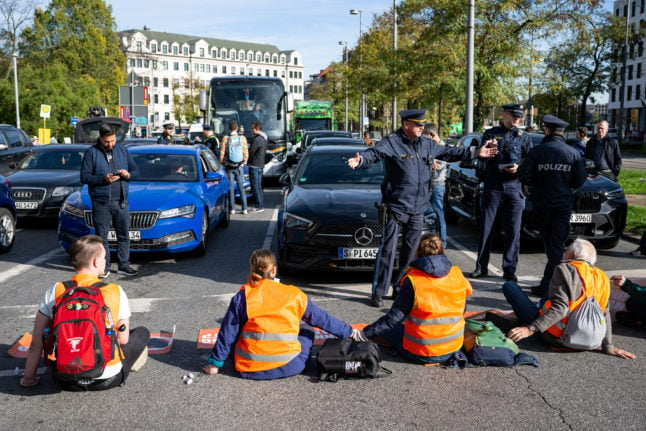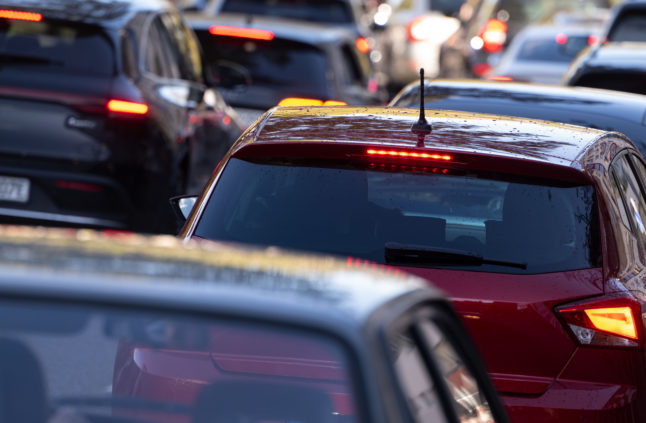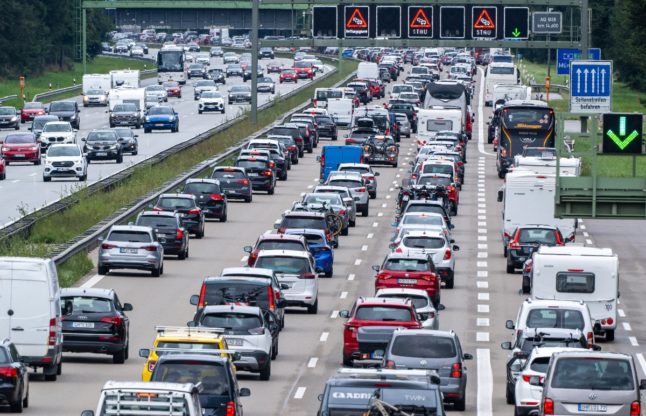In many ways, Germany is a car lover’s paradise. Not only are some of the world’s biggest car manufacturers based here, but drivers also enjoy numerous rights that they don’t elsewhere, from cheap parking permits to speed-limit-free sections of the Autobahn.
It’s no wonder then that the country has developed a reputation for being somewhat car obsessed. But how true is it really? We take a look at some of the facts.
The endless Tempolimit row
It’s a topic that’s almost never out of the news, and a debate that has been rumbling on for years: should Germany finally introduce a hard speed limit on sections of its Autobahn?
In German politics, the Green Party has been one of the loudest voices calling for so-called Tempolimit in recent years, arguing that the move would prevent accidents and drastically cut carbon emissions on the motorway. However, the liberal FDP were dead-set against the move when the ironically named traffic-light coalition sat down at the negotiating table last year.
Since Russia’s invasion of Ukraine, it seems that public opinion in Germany has been swinging towards the Greens. When framed as a solidarity measure in an ARD poll, 60 percent of Germans said they would be in favour of a temporary speed limit on the Autobahn, while just 35 percent were against.
Most surprisingly, even Finance Minister Christian Lindner (FDP) – who’s said to be a huge fan of fast cars – has softened his stance on the measure in recent weeks. In an interview on political podcast Lage der Nation, Lindner signalled his readiness to negotiate on the issue.
“I would immediately be prepared to say that we would impose a speed limit in Germany if the nuclear power plants were to run longer,” he told podcast hosts Ulf Buermeyer and Philip Banse.
READ ALSO: EXPLAINED: Could Germany introduce a motorway speed limit?
German car manufacturers
One of the reasons Germany is so closely associated with cars is the unwavering national pride in its car manufacturers. BMW, Volkswagen, Porsche and Mercedes-Benz are all German brands – and politicians in Germany have often been accused of being in the pockets of these big companies over the years.
Indeed, former chancellor Angela Merkel (CDU) has been branded the “car Chancellor” for her perceived friendliness towards the car industry – even when it interfered with her environmental aims. And there are endless jokes on German satire shows about Christian Lindner supposedly taking his policy ideas from the CEO of Porsche.
However, there’s no denying that car manufacturing plays a significant role in the German economy. In 2021, the sector employed almost 790,000 people and turned over a whopping €410 billion – accounting for 24 percent of domestic industry revenue. Seen from that perspective, it’s understandable that successive governments have wanted to keep these heavyweights on-side.

Car ownership
Though driving is clearly close to Germans’ hearts, it may surprise you to know that the Bundesrepublik is by no means at the top of the ranks in Europe when it comes to car ownership.
In a ranking of motor vehicles per capita in the EU, Germany actually ends up somewhere in the lower-middle, with a total of 14 member states – including France, Portugal, Italy and Finland – boasting more cars, vans and freight vehicles per person. (In case you’re interested, the Italian micro-state of San Marino topped this particular chart.)
However, when you look at the number of motor vehicles in total, rather than just per capita, the stats paint a slightly different story. While Italy and France both have around 45 million motor vehicles in the country, there are 52 million of them in Germany.
READ ALSO: Will Germany’s motorists and cyclists ever learn to live with each other?
Average mobility spend
Of course, that’s not to say that the German love affair with driving is entirely a myth. A recent study found that the average German spends a whopping €233 per month on their Auto, which adds up to almost €2,800 per year, compared to just €33 per month on buses and trains.
That’s not including the outlay for a car in the first place, which can cost well into the tens of thousands.
Debates over right-of-way
The seemingly unshakeable bond between Germans and their cars has become the subject of heated debate recently as the government tries to encourage people to switch to more climate-friendly options. Some argue that people have become far too attached to convenience and need to make lifestyle changes, while others say the transport network in Germany just isn’t good enough to support this.
In fact, it would probably be fair to say that there are two competing forces in German civil society at the moment: those who are fighting to reshape cities for a more eco-friendly future, and those who are fighting for drivers to maintain their rights and privileges (at least for now).

The latest front for this battle is Berlin, where the Senate has recently been forced to re-open a busy street to cars after a court ruled that there was no valid legal basis to redirect traffic. Friedrichstraße had originally been blocked off the motor vehicles as part of a traffic trial in 2020 – but the cycle paths and pedestrian walkways had simply remained in place ever since.
As the signage redirecting vehicles is removed from Friedrichstraße, it seems that those who wanted cars to return to the busy thoroughfare have won the battle. But with the Senate vowing to push ahead with plans to pedestrianise the street in the long-term, they may not have won the war.
READ ALSO: How Berlin Friedrichstraße ended up at the centre of the car-free debate



 Please whitelist us to continue reading.
Please whitelist us to continue reading.
Member comments